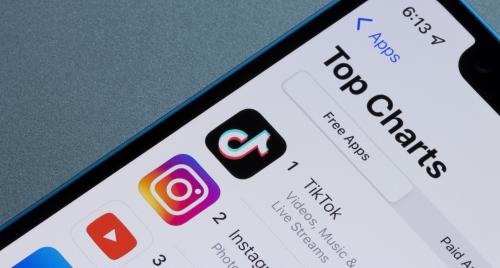Can a state that prohibits most or all abortions block access to online information provided by abortion rights advocates and clinics in states with more permissive abortion laws? After Dobbs v. Jackson Women’s Health Organization, in which the U.S. Supreme Court returned to states the power to regulate access to abortion, that question is no longer theoretical.
The answer ought to be “no.” After all, the First Amendment generally provides robust protection against government attempts to limit speech. However, a review of some of the Supreme Court precedents that will be invoked when this question inevitably arises shows that getting to that answer is more complex than it might first appear.
In 1975, the Supreme Court decided Bigelow v. Virginia, a case that arose from an advertisement published in a Virginia newspaper in 1971 regarding abortion services available in New York. A Virginia statute at the time outlawed the “sale or circulation of any publication” that would “encourage or prompt the procuring of abortion.” Bigelow, who was the managing editor of the newspaper that published the advertisement, was found guilty of violating the statute, and his conviction was subsequently upheld by the Virginia Supreme Court. The Virginia Supreme Court also reconsidered the conviction after the 1973 Roe v. Wade decision, upholding it a second time.
The U.S. Supreme Court reversed the conviction on First Amendment grounds. The Court noted that “the fact that the particular advertisement in [Bigelow’s] newspaper had commercial aspects or reflected the advertiser’s commercial interests did not negate all First Amendment guarantees.” (A year later, the Court more directly addressed the question of commercial speech and the First Amendment, concluding that “commercial speech, like other varieties, is protected.”)
A key consideration in Bigelow was that the advertisement, while unquestionably commercial in nature, also conveyed facts through the inclusion of phrases such as “Abortions are now legal in New York.” Thus, the Court explained, the advertisement provided information “not only to readers possibly in need of the services offered, but also to those with a general curiosity about, or genuine interest in, the subject matter or the law of another State.” The Court concluded that a state “may not, under the guise of exercising internal police powers, bar a citizen of another State from disseminating information about an activity that is legal in that State.” (The ruling also noted that Virginia could not “prevent its residents from traveling to New York to obtain those services or . . . prosecute them for going there.”)
On the other side of the ledger, there is the Supreme Court’s 1993 decision in U.S. v. Edge Broadcasting Company. That case considered whether the federal government could prohibit a radio station in a state where lotteries were unlawful from broadcasting lottery advertisements to an audience that included many listeners in an adjacent state with a state-sponsored lottery. Applying a framework known as the Central Hudson test, the Court found that “the statutes challenged here regulate commercial speech in a manner that does not violate the First Amendment.” However, this decision related to broadcasting, a domain where government regulatory authority (including, for much of the mid-20th century, its authority regarding content) is different from in other domains.
Edge Broadcasting considered advertising, and Bigelow considered advertising that also included additional information. Furthermore, both decisions predate the widespread adoption of the internet. Neither addressed the provision of information in a non-commercial context, where First Amendment protections are stronger.
Suppose an abortion-rights advocacy group in a state that has permissive abortion laws hosts a website aimed at providing information on abortion access to residents of states with restrictive abortion laws. This should fall solidly within the realm of First Amendment-protected speech.
There is nonetheless reason to believe an informational website might draw the attention of state legislators. In June 2022, the National Right to Life Committee released model legislation that would criminalize “knowingly or intentionally hosting or maintaining an internet website, providing access to an internet website, or providing an internet service, purposefully directed to a pregnant woman who is a resident of this state, that provides information on how to obtain an illegal abortion, knowing that the information will be used, or is reasonably likely to be used, for an illegal abortions.”
If enacted into law, this language would be problematic from a First Amendment standpoint in light of Bigelow, which explicitly endorsed a right to convey information to people in one state about state laws in a different state. It is also problematic in light of more recent Supreme Court jurisprudence. For instance, in 2014 in McCullen v. Coakley, the Court found that a Massachusetts law intended to prevent protesters from remaining “within a radius of 35 feet of any portion of an entrance” of a “reproductive health care facility” violated the First Amendment. The Court criticized Massachusetts for taking the “extreme step of closing a substantial portion of a traditional public forum to all speakers”—a result that, by analogy, would underscore the First Amendment problems with state attempts to impede the internet’s role as a public forum.
Yet another complexity is that states aiming to impede access to information about abortion will not be limited to enacting criminal statutes. In May, the governor of Oklahoma signed into law a bill that (like a Texas law enacted in late 2021) allows a civil action against “any person who . . . knowingly engages in conduct that aids or abets the performance or inducement of an abortion.” The law provides for statutory damages of at least $10,000 for each abortion “that the defendant aided or abetted,” though does not specify whether the provision of information could create legal exposure.
Would an abortion rights group in New York that hosts an informational website directed to people in Oklahoma be aiding or abetting the performance of abortions? Would the allegedly actionable conduct be occurring in Oklahoma or would it be occurring in New York, and therefore beyond the reach of Oklahoma law? Would a First Amendment defense be sufficient? It would be foolish to presuppose the outcome of a lawsuit in an Oklahoma state court testing these questions.
The upshot is that post-Dobbs, there is significant uncertainty regarding how the First Amendment will be interpreted in relation to online information about abortion. On balance, Supreme Court precedents regarding freedom of expression indicate that the provision of information (and advertising accompanied by information) about abortion should be protected under the First Amendment. But given that Dobbs itself upended precedent, it is difficult to predict how the Supreme Court might rule on future cases involving state attempts to limit speech about abortion.







Commentary
Can a state block access to online information about abortion services?
July 27, 2022